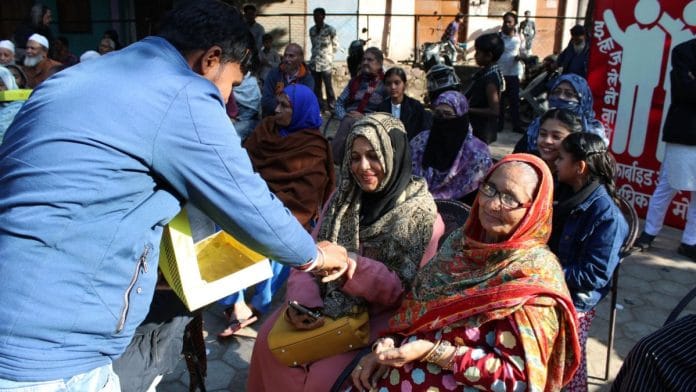New Delhi: Bhopal-based Sambhavna Trust Clinic, which has been providing free specialised healthcare to survivors of the Bhopal Gas Tragedy for over two decades, started the new year with renewed hope. The clinic’s FCRA (Foreign Contribution Regulation Act) license, essential for receiving foreign donations, was reinstated Friday after years of uncertainty.
The trust’s FCRA registration, originally valid until 31 October, 2021, had been abruptly cancelled in October 2019 for alleged rule violations, leading to the freezing of its bank accounts by the Ministry of Home Affairs (MHA). This placed the clinic on the brink of closure, jeopardising critical healthcare services for thousands of survivors.
Leaders of the Union Carbide Poison Victims Healthcare Rights Front claimed that they discovered the FCRA re-registration notification on the Home ministry’s portal on the morning of 3 January, marking a significant relief for the trust and the communities it serves.
“The Sambhavna Trust Clinic, that can now receive individual contributions from abroad, will re-open on Monday, 6 January, 2025,” a statement released by the clinic read.
Patients and staff at the Sambhavna Trust Clinic have been participating in a peaceful sit-in protest on the clinic’s premises since 1 January, demanding the swift renewal of the trust’s FCRA registration.
Nearly three decades ago, the clinic, run by the Bhopal-based NGO Sambhavna Trust, began providing care to survivors with a holistic approach, integrating modern medicine, Ayurveda, yoga and community health initiatives.
By October 2019, its services had expanded to include pathological investigations, ultrasound, gynaecology, ophthalmology clinics, a herb garden and a herbal medicine production unit, emergency and paramedic services, and community-based research.
Beyond its clinical work, the Sambhavna Trust Clinic has 40,000 community health workers serving a population of over 30,000 with health initiatives to combat malaria, dengue and tuberculosis, and conducting early cervical cancer screenings.
Its community health surveys document long-term health challenges faced by more than 100,000 people.
(Edited by Radifah Kabir)






